On the 50th anniversary of his tragic death at Monza, David Tremayne remembers the great Jochen Rindt - F1's only posthumous world champion, and a prolific racer taken far too soon...
Bursting onto the scene
Who the hell is Jochen Rindt? It was, perhaps, the inevitable question after Karl Jochen Rindt burst so insouciantly on to the Formula 2 scene one weekend back in 1964, driving a Brabham BT10 at Mallory Park and Crystal Palace.
Few people in the paddock at the Leicestershire track had the faintest idea who the tall Austrian with the tousled hair and the flattened nose was, but by the end of that Bank Holiday weekend they realised he was one mighty fast young man who in one bound had leapt from obscurity, fully fledged, onto the world stage.
LISTEN: Jochen Rindt remembered – by Helmut Marko, Jackie Stewart and Bernie Ecclestone
That weekend at Mallory, a track which he had never seen before, he followed a helpful Denny Hulme round for a few laps, then surprised everyone – not least himself – by taking pole ahead of the likes of the established Jimmy Clark and upcomers Hulme, David Hobbs, Frank Gardner and Richard Attwood. Jackie Stewart, who won the F3 race, initially dismissed his lap as a timing error. Jimmy won the race, but Jochen made a big impression with third place despite fluffing the start.
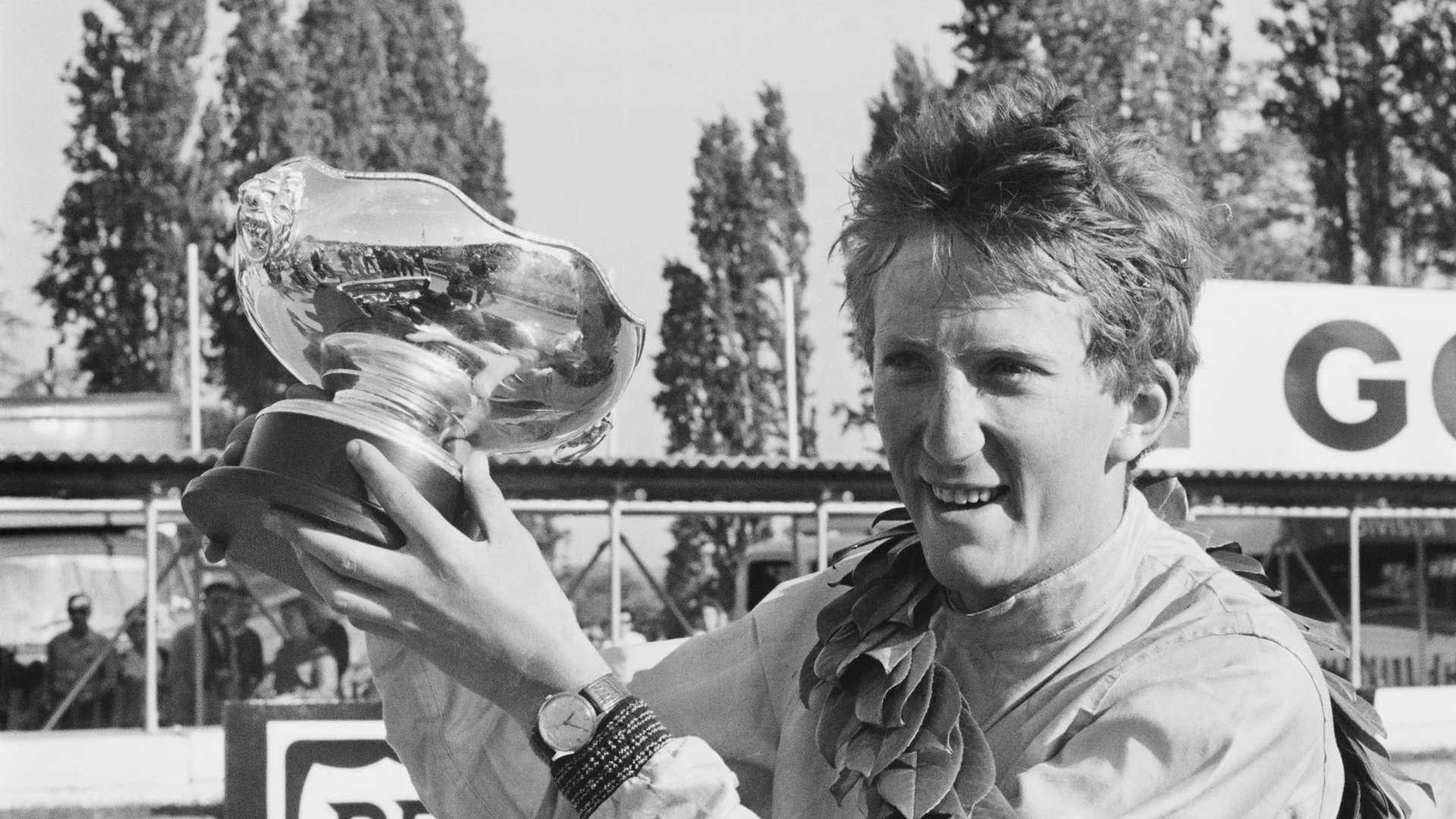
Jackie later observed, “He obviously wants to be independent and asks no one for any favours; a bit of a loner, perhaps. A man who doesn’t need any help and who doesn’t want anyone to think he does.” Mechanic Nick Goozee (later to play key roles at Brabham and Penske), concurred, remembering Jochen being very quiet and watchful, noting everything. “He hadn’t brought along any friends or companions, he was quite alone.”
A day later he was at Crystal Palace, in south London. Graham Hill beat Jim and Denny in the first heat; driving with the same panache and assurance he had displayed at Mallory, Jochen dominated the second, easily fending off polesitter and circuit expert Alan Rees, who set fastest lap.
At the start of the final, poleman Hill asked, “Who is the boy alongside me?”
“Jochen Rindt of Austria,” he was told. “Never heard of him,” Graham responded.
Graham’s Cooper soon broke, leaving Jochen to catch and pass Rees to take an astonishing victory.
Startling speed
But where did that prodigious speed come from?
.webp)
Prior to Mallory there was one man who knew just who Jochen Rindt was. As an unknown wannabe racer himself, running in less publicised European races, Frank Williams had encountered the apparently wealthy Austrian with the red shirt, pink trousers and white Jaguar E-Type, and had wondered about him. But then he watched him drive.
He saw how he dealt with a very fast fifth-gear curve, sliding through it with complete confidence in a four-wheel drift. Frank, ever a racer, thought that was splendid and lost no time telling Jochen how brilliant he thought he was.
READ MORE: Jochen Rindt in the F1 Hall of Fame
Years later Rees told legendary writer Alan Henry, who had been inspired by what he witnessed as a 16 year-old that day in south London to become a motorsport journalist, how he had watched Jochen’s car control as he took every corner “in what looked like a half-spin. After pulling my foot off the throttle for about seven laps, I started to get the message that this bloke must have known partly what he was doing, and I thought: ‘Jeez, he’s not going to lose it, even though he looks like it every time.’
“Jochen was supremely confident. He was obviously pretty serious about his racing, but his whole outward demeanour suggested he was only doing it for fun – and having one hell of a good time.”
So where had he learned to be so fast?
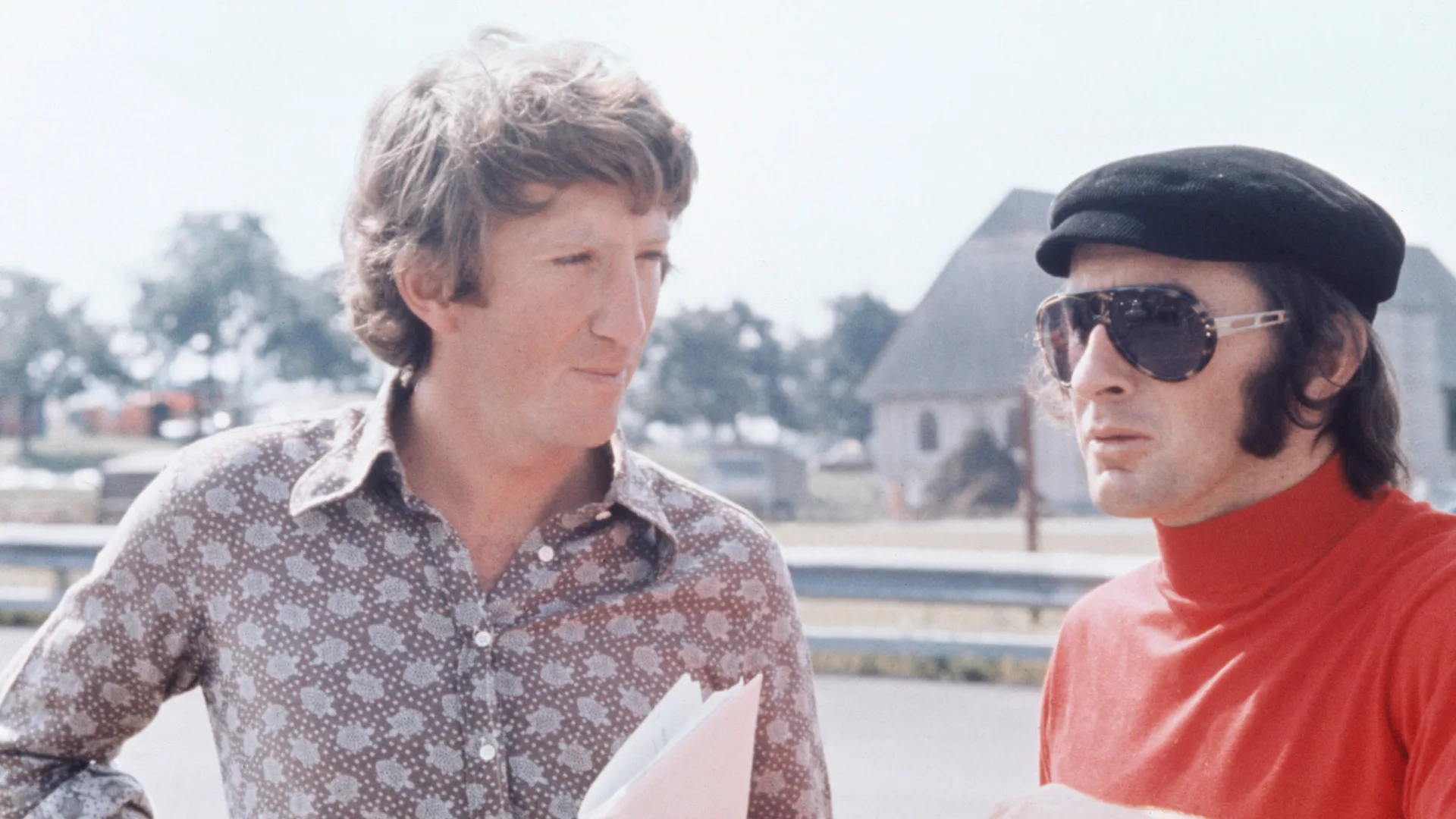
Racing roots
Red Bull’s Helmut Marko was one of Jochen’s childhood friends, and indeed they were both invited to leave the Pestalozzi School in Graz when their penchant for juvenile adventures overwhelmed their scholastic schedule.
With other friends they would race their ‘wombats’, as Helmut called their mopeds, and later Jochen, who was an excellent skier and tennis player, competed in motocross races, where he further honed his senses of speed, balance and hand-eye coordination.
READ MORE: From rising F1 talent to F1 talent spotter - the Helmut Marko story
Later still in Jochen’s decrepit Volkswagen Beetle, which smelled of the pepper from the Klein & Rindt spice mill run by his parents until their deaths in 1943 in an Allied bombing raid over Hamburg, each friend got to drive until he either lifted off or made a mistake. After that, he would be substituted.
Later they raced at night from Vienna to Graz, Jochen in his Simca Aronde Montlhery, Helmut initially in a little Steyr Puch and later in his father’s Chevrolet, which he ‘borrowed.’ The races were tough and any display of sensitivity counted against you. If you met trouble, you were on your own. Jochen and Helmut developed hard, independent edges.
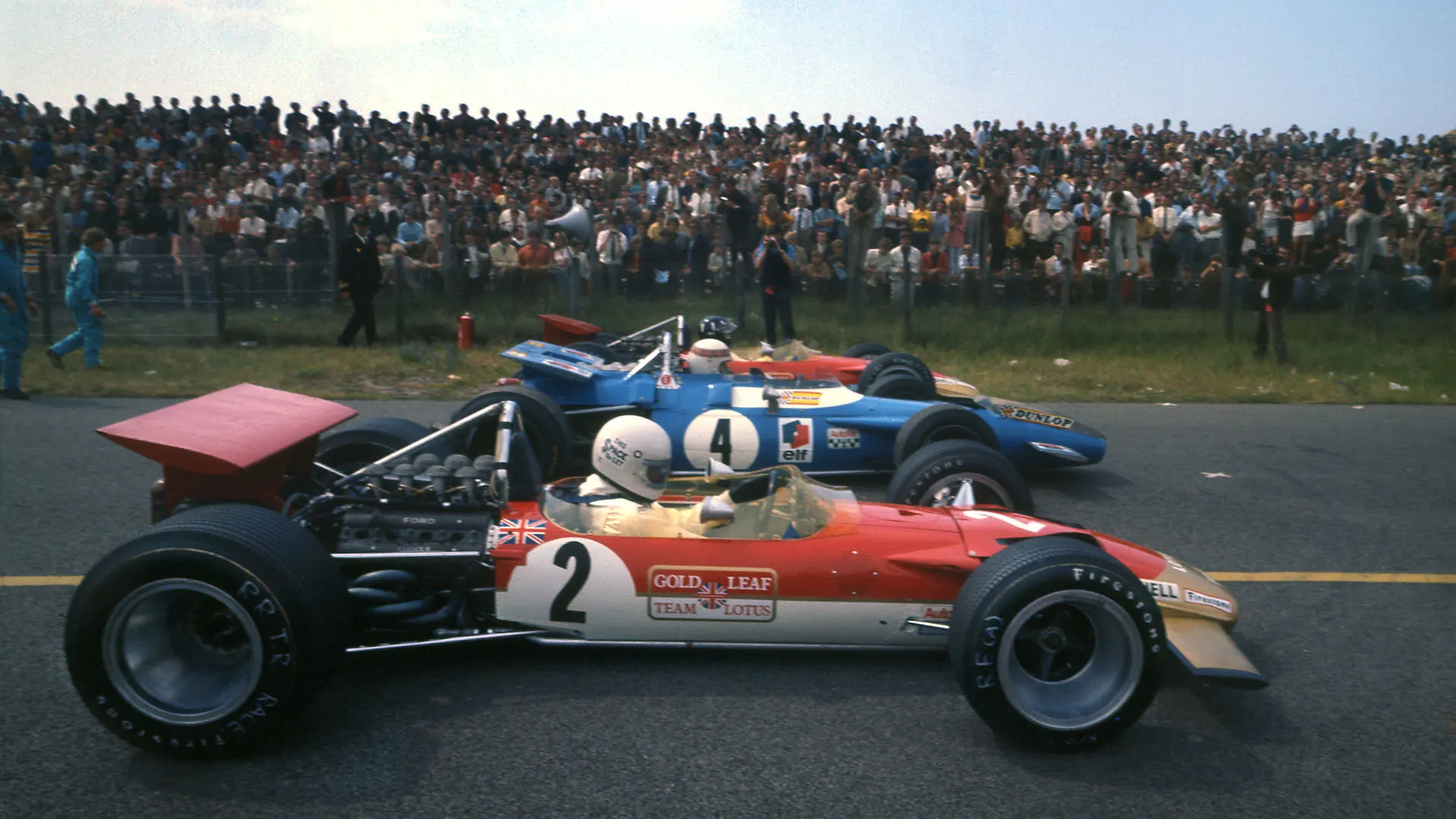
Jochen rallied the Simca, honing his already impressive car control, and participated in speed trials before moving on to an Alfa Romeo Giulietta TI. Soon he was beating everyone and looking further afield for the best competition, before graduating to single-seaters.
The move to F1
His early years in F1 were damned by poor Coopers, the Climax-engined T73 and T77 in 1965 where the purgatory was alleviated only by a sensational flat-to-the-floor win in a tired and disintegrating NART Ferrari 250LM at Le Mans, and then the Maserati-powered tanks of 1966 and 1967.
PODCAST: Jacky Ickx on Stewart, Brabham, the great Enzo Ferrari and more
But he excelled in the rain at Spa in 1966, and the Brabham-Repco BT26 of 1968 allowed him to demonstrate pole-winning speed, though it lacked the reliability to give him the win he craved.
That finally came in the US GP in 1969 with Lotus, before 1970 saw him win sensationally at Monaco in the old Lotus 49C, his blinding speed having pressured Jack Brabham into a rare error. He then won four times in a row in the by-then fully sorted Lotus 72 before the tragedy at Monza, when his car speared off the road at Parabolica, killing him before he was crowned champion.
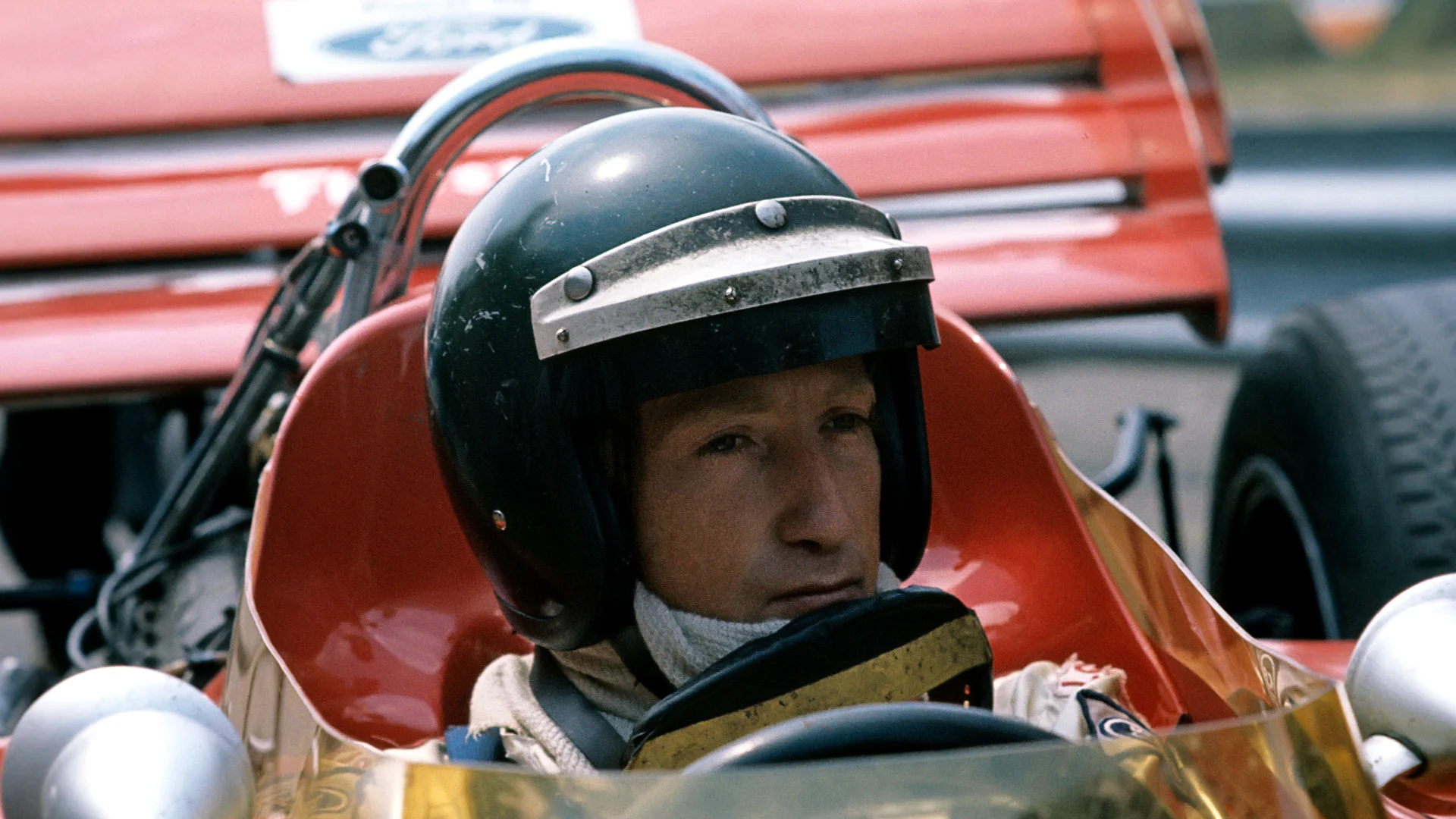
The racer's racer
In Formula 2 Rindt was always the king, capable of beating Clark and Stewart, in Lotus and Matra respectively, fair and square.
First and foremost, Jackie always said, Jochen was an extraordinarily fast racing driver. Spectators loved the way he could generate speed even while on opposite lock, bending a car to his will, defying the laws of physics. He could make that work in F2, but it took him a while to figure that it wasn’t always the way to go in a heavier F1 car, and gradually he refined his style further, becoming a more calculating and efficient driver as a result who would probably have won many titles.
READ MORE: ALTERNATIVE HISTORIES: What if Jackie Stewart hadn’t retired in 1973?
Jackie loved racing Jochen. So did Jack Brabham. “We used to have terrible dices on the track, and we’d laugh about it all night! How we almost put each other off! We had a fantastic relationship. We went round Paddock Bend once with our wheels interlocked! He was absolutely clean, and I enjoyed driving with Jochen more than any other driver. I trusted him completely.”
Bernie Ecclestone, his close friend and putative manager, remembers him fondly. “Certainly without any shadow of doubt he was in the top five guys that have been around. For sure. He was quicker than Jackie all the time, and for sure as fast as Jimmy.”
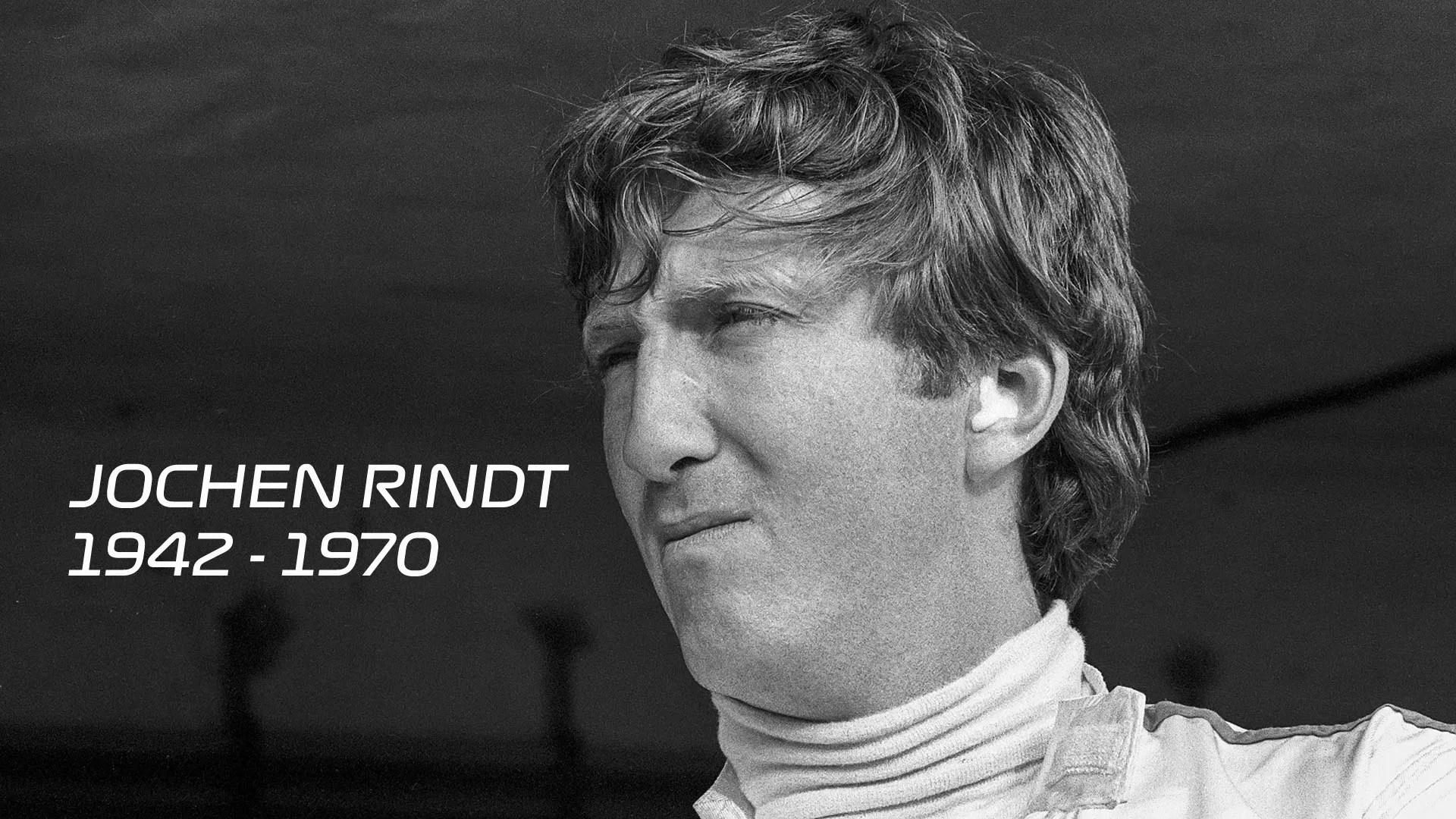
Next Up
Related Articles
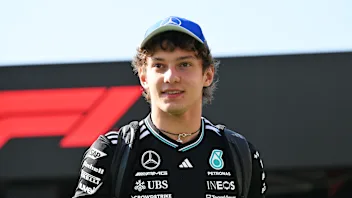 Antonelli outlines title goal ahead of 2026 season
Antonelli outlines title goal ahead of 2026 season.webp) Russell impressed by ‘pretty spectacular’ Aston Martin
Russell impressed by ‘pretty spectacular’ Aston Martin.webp) Why January could be the busiest month for F1 drivers
Why January could be the busiest month for F1 drivers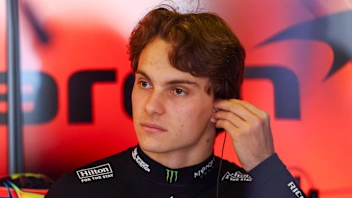 Piastri assesses first drive in 2026 McLaren
Piastri assesses first drive in 2026 McLaren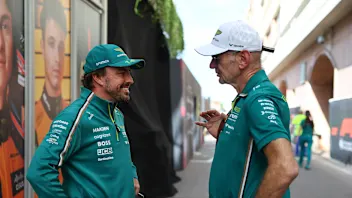 Newey ‘always teaching us something’ – Alonso
Newey ‘always teaching us something’ – Alonso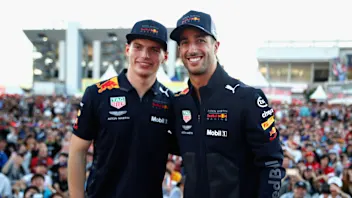 In NumbersHow Verstappen’s team mates fared against him
In NumbersHow Verstappen’s team mates fared against him
